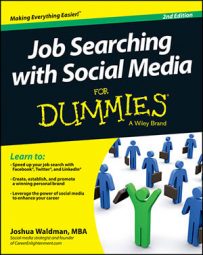Values — those fundamental principles you believe in — are what drive your decision making, at least when it comes to the big stuff, like job searching. For example, if you value sustainability, you probably aren’t going to choose to work for an oil company. Knowing your values makes it easier to establish goals, make career choices, and most importantly, make decisions about what you want your brand to be all about.
Spend a few days thinking about your values and what’s most important to you in life. If you’re a list person, you can head to stevepavlina.com for a list of values that you can pick and choose from. If you prefer a more hands-on approach, try your hand at one of the following exercises designed to help you identify your values.
Creating this list of your own values helps you write your value statement, which is how you differentiate yourself in the job market.
Who do you admire most?
A great way of discovering your life values is to think carefully about who you admire and what values you share. This person can be famous or as close to you as a parent. Their values come out when you evaluate what they were willing to sacrifice or what motivating force led them to accomplish what they did. To figure out what values earn your admiration, simply follow these steps:
Make a list of five people you admire.
They can be icons, role models, or loved ones.
List the reasons you admire them next to their name.
Was it something they achieved, something they sacrificed their lives for, or an ideal they stand for?
Determine the value behind each of those accomplishments and whether you share it.
For example, say you put your grandmother on your list because of the compassion she shows others by spending a few hours a week visiting patients at a local children’s hospital. Because of her example, you feel compelled to volunteer to help care for abandoned animals. So you may make a note that compassion is a core value for you.
What are you most proud of?
Thinking about the one thing in your past that you’re the most proud of is a simple exercise that can work wonders. Many people have found flashes of insight into their personalities and professional lives by doing this exercise.
Spend a few minutes writing down the whole story of your proudest moment. Then ask someone you trust to read it and give you feedback. Have that person tell you what you seem to value in that situation. Often, your deepest values emerge based on the events you choose to remember most.
For example, a client was most proud of a time she stood up to some bullies who made fun of her because of her skin color. Even though she was punished by her parents, she felt proud of having taken a stand. Through this story, she discovered that she very deeply cares about justice and taking personal risk in order to do what she thinks is right.
Finish the sentence
Finishing leading sentences is a fun and creative way to elicit your values. What may seem like an obvious finish for you may be totally different for someone else, and realizing that difference helps you define your uniqueness. Finish the following sentences for a flash of insight into your deepest character:
If I had 24 hours to live…
If I had a million dollars, I would…
Many people don’t agree with me about…
My best friends can be counted on to…
People who know me think I am…
If I could be any animal, I’d be a . . . because…
What do you want your 75th birthday toast to be?
Imagine you’re at your 75th birthday party, and people who know you well are toasting you. Think about what you’d want them to say based on your life up to this point and between now and age 75. Describe the setting, who’s attending, and who’s giving the toast, and then write the tribute, being as specific and detailed as possible. Consider talking about the following points:
Your heirs — your genetic legacy — and what makes you proud of them
Professional or charitable organizations you’re a member of
Various members of the audience; who you’d have at the party
Your most noteworthy accomplishment
Something you always wanted to do but never did
The impact you’ve had on the life of the person speaking, who that person is to you, and why he or she volunteered to toast you

